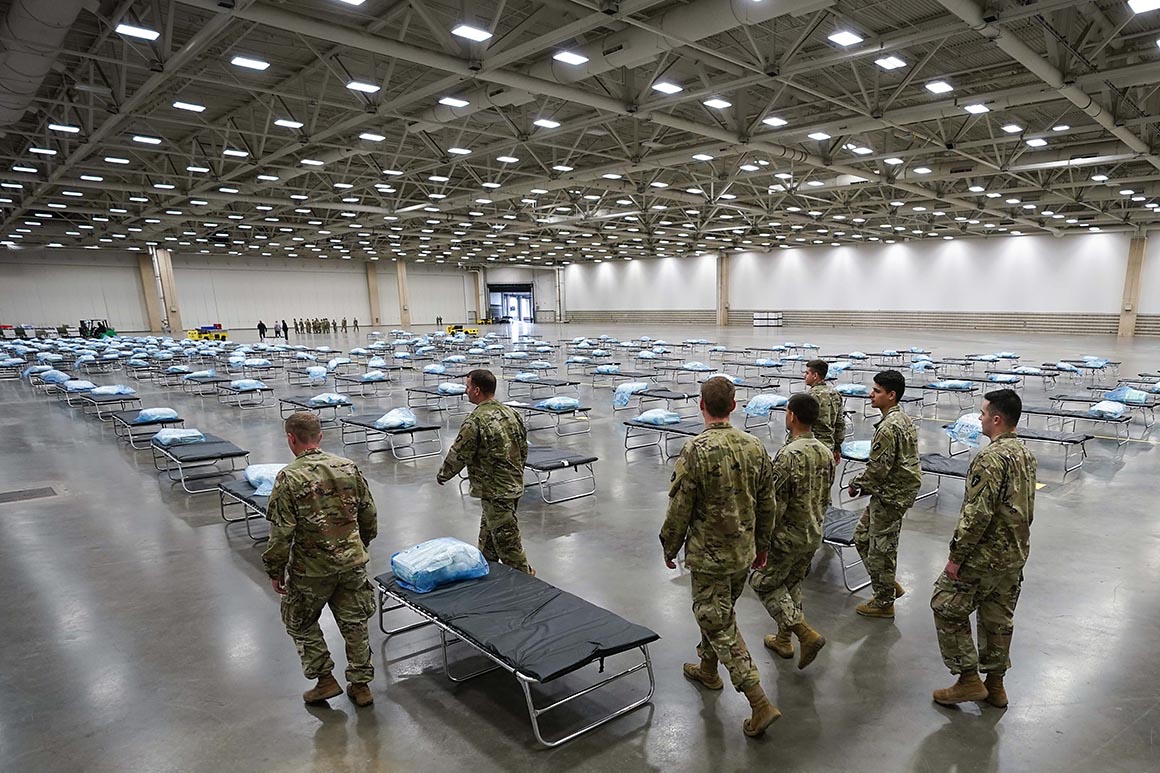
The governors in states with sparser contact tracing programs said dire unemployment numbers have left them little choice, but to begin gradually sending people back to work while case counts still grow, even if it means reopening before they can fully bolster public health measures. They say weeks of unprecedented shutdowns have ensured their health care systems won’t be overrun if coronavirus cases creep upward, and they can move swiftly to reimpose lockdown orders should new hot spots emerge.
“We are looking at depression-level unemployment,” Kemp said earlier this week. “We’re facing hardships now trying to feed everybody.”
But even when these states hit their hiring targets for contact tracers, public health experts said they are still likely to have fewer than needed to prevent a second spike of infections. Thousands of potential new contacts to track are being added every day in these states, and the ability to quickly identify new cases through testing remains inadequate in many. And the job of meticulously tracing contacts only gets harder as more people reenter the workforce and go about their daily lives, they also warned.
“If it’s not done in a methodical, reasonable way, it’ll undo all the strong work we’ve done in the community,” said Dr. Umair Shah, who leads the public health department in Harris County, Texas, an area that includes Houston and is more populous than several states.
Contact tracing programs, paired with expansive testing, have been credited with controlling the spread of Covid-19 in countries like South Korea and New Zealand. Public health experts and lawmakers have called for the U.S. to establish a national program of contact tracers numbering between 100,000 and 300,000 — far more than the nearly 2,000 state and local health departments had before the novel coronavirus emerged.
Public health departments, already suffering from years of funding cuts, face an unprecedented challenge. While their small team of disease detectives are used to tracking STDs, which are slow to spread, or viruses like the measles for which there is a vaccine, they’ve never attempted to thwart an easily transmittable virus that’s quickly spread to over 1 million Americans and killed at least 64,000.
Experts, including former FDA Commissioner Scott Gottlieb and Medicare chief Andy Slavitt, this week called for a $46 billion national investment to help states trace contacts and isolate people outside of their homes. That plea came even after Congress last week cleared $25 billion for testing other public health measures, including contact tracing.
Before Texas imposed its stay-at-home order, contact tracers in Houston on average were speaking to about a dozen contacts of newly infected people, said Kirstin Short, who heads the city health department’s epidemiology office. That number was cut in half under the lockdown measure set to expire this week.
“Social distancing was working,” Short said. “But we’re anticipating that as these restrictions are loosened, those potential contacts are going back up again.”
Polls have shown widespread support for social distancing measures, so many may still be cautious in reopening states. Some localities, including Denver and Boulder County, Colo., are breaking with governors to keep their stay-at-home orders in place. And in states where governor’s reopening orders have wiped away local rules, mayors in Atlanta and Austin, Texas, are pleading with residents to stay home.
The Trump administration has largely shifted responsibility to the states for coronavirus testing, as well as contact tracing, providing little guidance about how many workers states should hire or how they should be deployed. That’s led to a patchwork of state responses, with some building up an army of contact tracers ahead of reopening.
Source: politico.com
See more here: news365.stream






